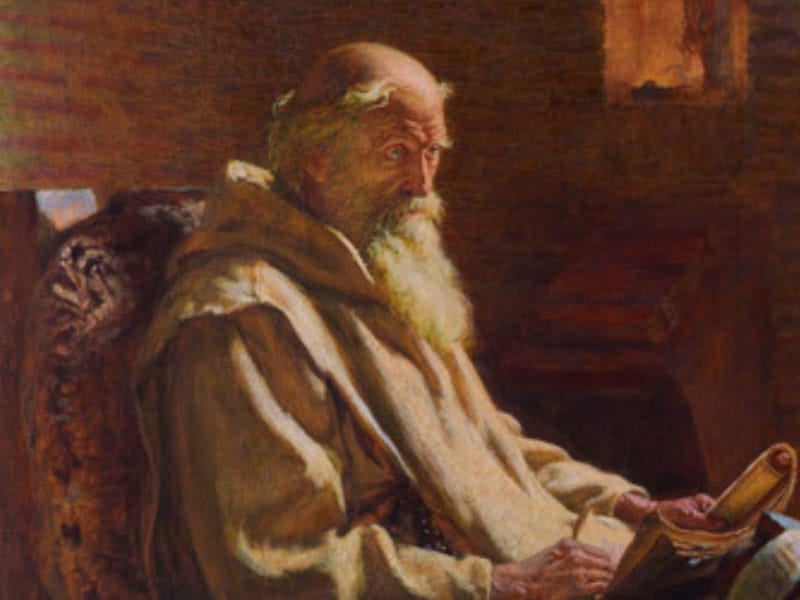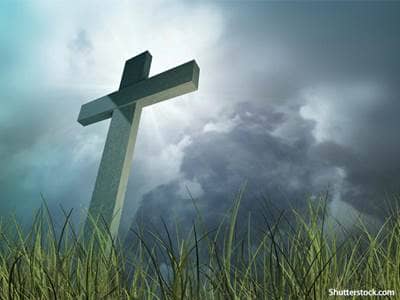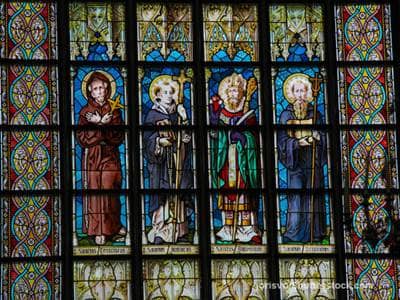St. Bede the Venerable (672?-735)

Bede is one of the few saints honored as such even during his lifetime. His writings were filled with such faith and learning that even while he was still alive, a Church council ordered them to be read publicly in the churches.
At an early age Bede was entrusted to the care of the abbot of the Monastery of St. Paul, Jarrow. The happy combination of genius and the instruction of scholarly, saintly monks produced a saint and an extraordinary scholar, perhaps the most outstanding one of his day. He was deeply versed in all the sciences of his times: natural philosophy, the philosophical principles of Aristotle, astronomy, arithmetic, grammar, ecclesiastical history, the lives of the saints and, especially, Holy Scripture. From the time of his ordination to the priesthood at 30 (he had been ordained deacon at 19) till his death, he was ever occupied with learning, writing and teaching. Besides the many books that he copied, he composed 45 of his own, including 30 commentaries on books of the Bible.
Although eagerly sought by kings and other notables, even Pope Sergius, Bede managed to remain in his own monastery till his death. Only once did he leave for a few months in order to teach in the school of the archbishop of York. Bede died in 735 praying his favorite prayer: “Glory be to the Father, and to the Son, and to the Holy Spirit. As in the beginning, so now, and forever.”
His Ecclesiastical History of the English People is commonly regarded as of decisive importance in the art and science of writing history. A golden age was coming to an end at the time of Bede’s death: It had fulfilled its purpose of preparing Western Christianity to assimilate the non-Roman barbarian North. Bede recognized the opening to a new day in the life of the Church even as it was happening.
-
St. Agatha (d. 251?)
-
St. Agnes (d. 258?)
-
St. Anthony of Padua (1195-1231)
-
St. Maria Goretti (1890-1902)
-
Sts. John Jones and John Wall (c. 1530-1598; 1620-1679)
-
St. Adalbert of Prague (956-97)
-
Blessed John Francis Burte and Companions (d. 1792; d. 1794)
-
St. Thomas the Apostle
-
St. Oliver Plunkett (1629-1681)
-
Blessed Adolph Kolping (1813-1865)


